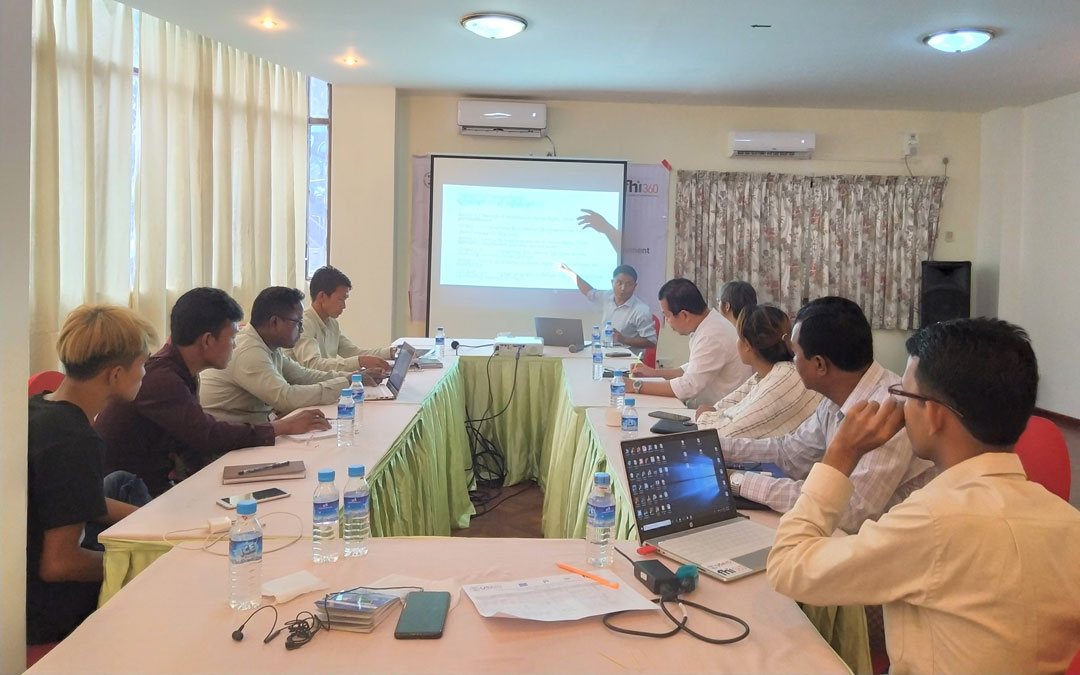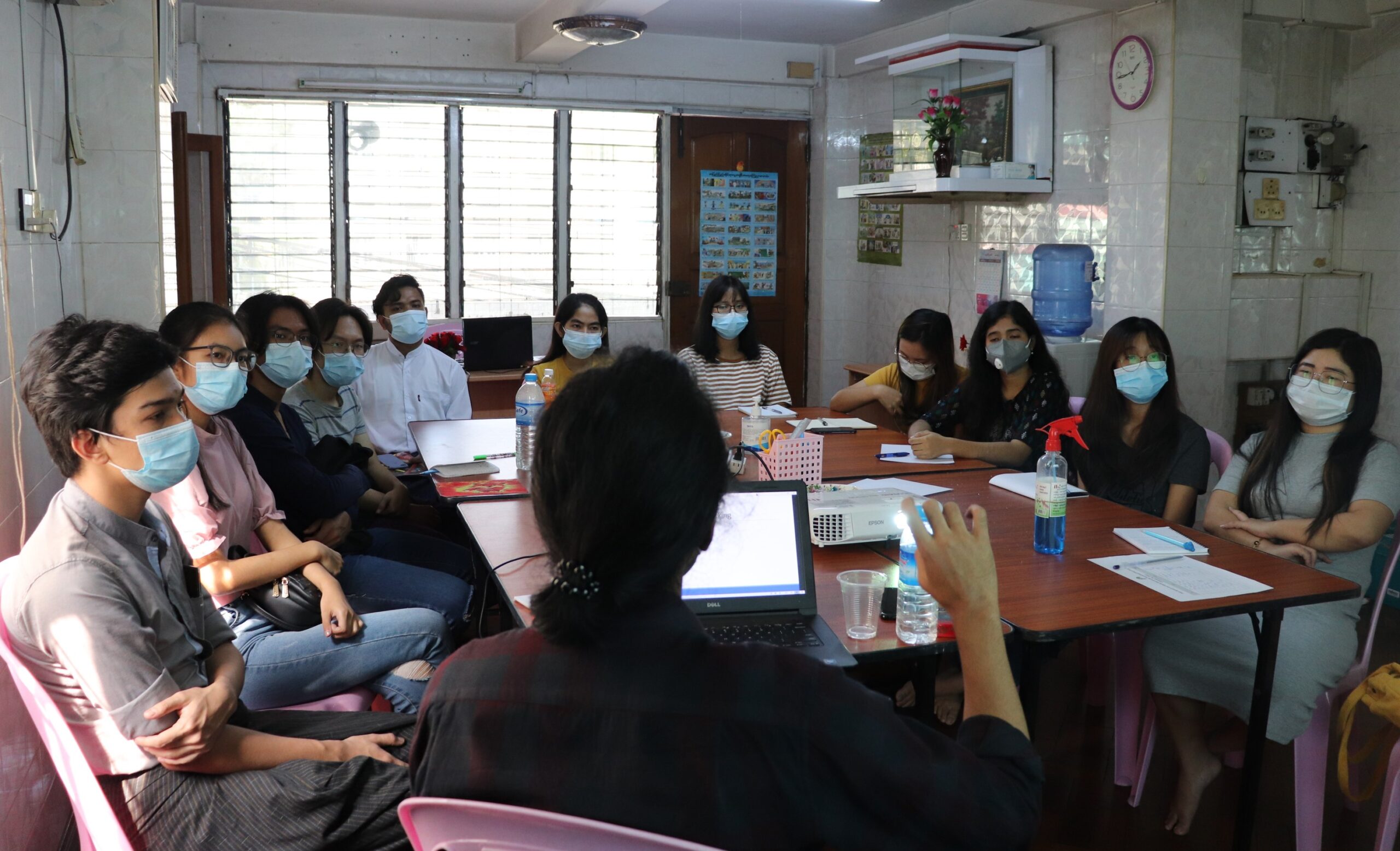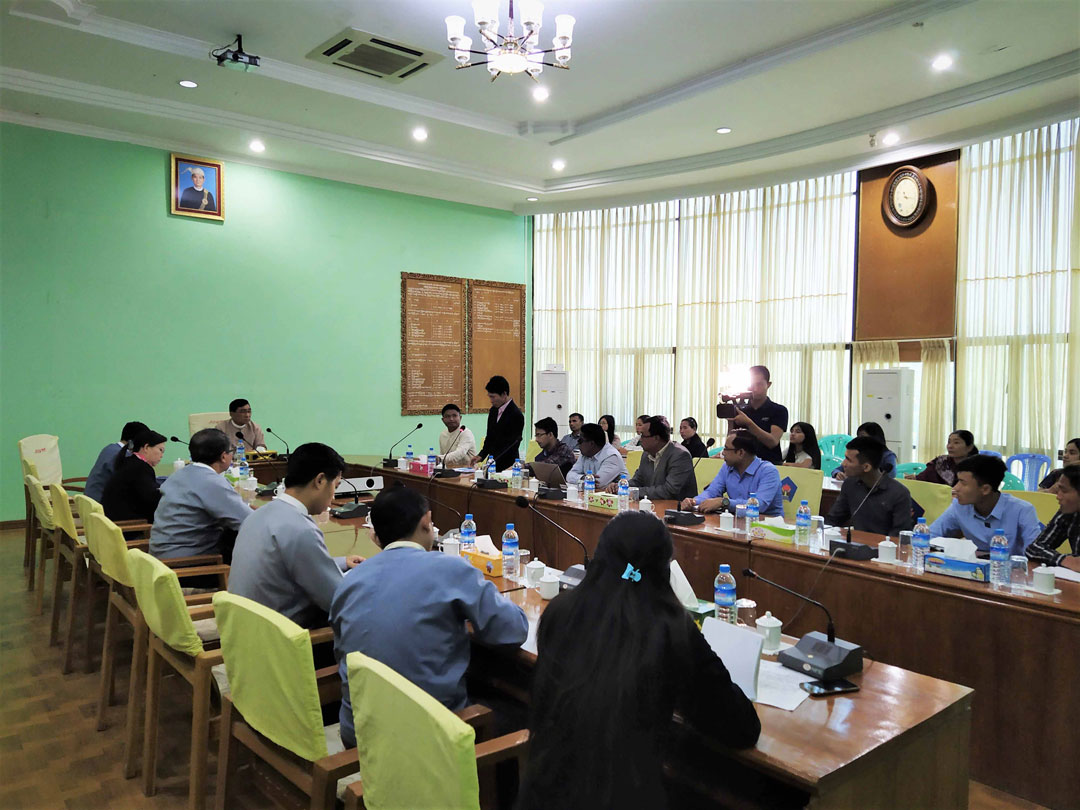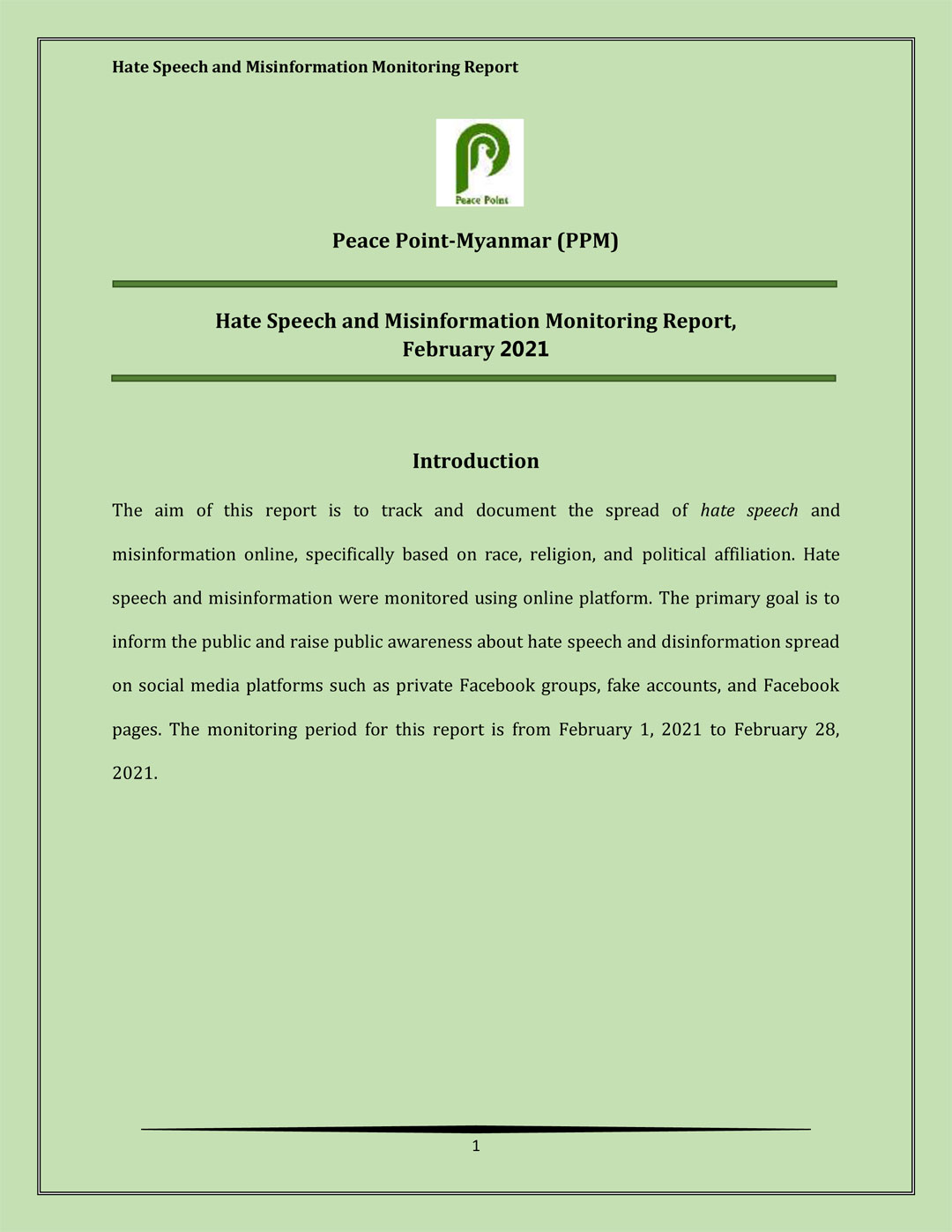Overview of the Programs
The PPM implements its programs through the following five KEY FUNCTIONS.

Research Program
Since 2016, Peace Point-Myanmar (PPM) has produced several research reports, each addressing critical issues faced by marginalized and conflict-affected communities.
PPM’s first research report, "Opinions and Views of Key Stakeholders from Conflict-Affected Communities on the Rakhine Advisory Commission Report," aimed to understand community perspectives on the Rakhine Commission’s findings and recommendations while addressing rumors and misconceptions to facilitate constructive implementation of the report.
The second report, "Opinions and Views of Rohingya Key Stakeholders on Challenges of IDP Resettlement and Refugee Reparation Processes," examined the challenges in resettling internally displaced persons (IDPs) and the reparation process for refugees, providing insights and potential solutions.
PPM’s third research, "Monitoring General Election Campaign-Related Hate Speech and Disinformation in Myanmar," was conducted during the 2020 general election. This study aimed to inform the public and media on the impact of misinformation and hate speech, and to monitor compliance with electoral laws by political parties and parliamentary candidates.
The fourth report, a collaborative effort titled "Building Upon a Foundation Among Diverse Communities in Rakhine State," focused on identifying challenges and approaches for the resettlement of displaced persons and on fostering reconciliation among different ethnic groups in Rakhine State.
The fifth report, "The Impacts of Hate Speech and Discrimination on the Daily Lives of Religious Minority Youth," collected qualitative evidence on the daily challenges faced by youth from religious minorities, highlighting the harmful effects of hate speech and discrimination to raise public awareness.
In 2024, PPM completed studies titled "Unveiling the Hidden Voices of Rohingya Human Trafficking Survivors in Rakhine State". The primary aim of this study is to examine the situation of human trafficking within the Rohingya community in Rakhine State, assess the access to justice for victims of human trafficking, explore the challenges faced by incarcerated Rohingyas, and identify constructive approaches to aid in their life rehabilitation. The report provides valuable insights and firsthand testimonies from Rohingya survivors of human trafficking in Rakhine State. In 2023, PPM also conducted studies titled: "Exploring the difficulties and challenges that the Rohingya community in Rakhine State faces in terms of citizenship, human trafficking, and access to justice”. The main objective of this research is to “explore the difficulties and challenges that the Rohingya community in Rakhine State faces in terms of citizenship, human trafficking, and access to justice.”
Research Methodology Training


Human rights Advocay Program
We conduct advocacy at the local level and Union government level in Myanmar to help protect the rights and enhance the status of marginalized communities. We do advocacy based on our documentation and research findings. Our advocacy strategy includes publications, campaigning, and advocating in person from grass root level to national level. We also engage with international communities to improve human rights across Myanmar.
We also offer Human Rights Advocacy Training for minority communities. This program is designed for minority youths, university students, human rights activists, local CSO leaders, NGO members, and anyone else with an interest in human rights offered quarterly. The program aims to increase the capacity of minority youth and women to advocate for their rights under national law and international human rights laws. This program is specially designed for the minority youth, human rights activists, and community leaders from the conflict-affected areas in order to be able to advocate for their rights. This training covers the basic concept of human rights, human rights documentation, human rights advocacy strategy.
The expected result of the program is participants themselves can become human rights advocates for themselves and for their communities as well. This training will also become a channel for minority people to build their capacity and to promote and protect their rights in their daily rights. This training will provide insightful ways how to defends and advocate for their rights. This training will support them to get to know their rights and to become human rights advocates. This training is design for a 3- half-day training, enrolling with 20 participants especially with minority youths, women, and community leaders across Myanmar.
Newsletter
The PPM monitors hate speech and misinformation online and produce a monthly Newsletter. The newsletter has been issued regularly since October 2020. We collect data from domestic newspapers, local media, and Facebook. In addition, during the election period, we monitored election campaign-related hate speech and misinformation made by candidates and produce research reports. For the monthly updates subscribes to us.


